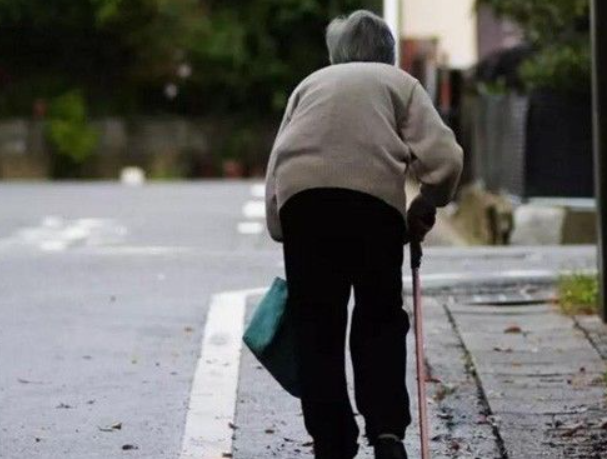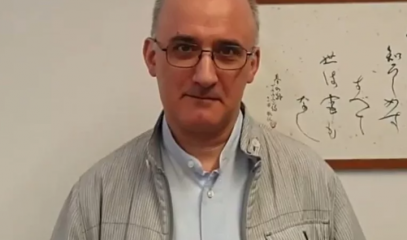Deaths undiscovered for eight days highlight the ‘kodokushi’ emergency among lonely Japanese seniors
According to Japan’s National Police Agency, more than 40,000 lonely deaths at home were reported in the first half of this year. More than one case in four is discovered after more than a week. The causes include an aging population, weakening relationships, and a reluctance to seek help. “A person told me that [. . .] he has only one friend left, whom he talks to twice a year,” says Father Marco Villa, head of a counselling centre in Koshigaya. Loneliness is the country’s greatest tragedy.
Rome (AsiaNews) – Kodokushi (孤独死) refers to the lonely death many people suffer because of lack of relations, which often goes undiscovered for a long period. This is one of the tragic faces of loneliness in Japan.
According to new data released today by the National Police Agency, 40,913 people died in their homes alone from January through June, an increase of 3,686 over the same period in 2024.
Perhaps the most disturbing detail is that at least 28 per cent (11,669 people) were discovered after eight days or more.
One of the main causes is Japan's aging population; one in four people is over 65.
“There is also an increasing tendency to have no significant ties either to the local area or to family,” explains Father Marco Villa, a PIME missionary who works in Koshigaya, a town on the northern outskirts of Tokyo, in the Diocese of Saitama.
Speaking to AsiaNews, he notes that, “Most people do not live in the places where they grew up, but find themselves living where there is work. It is, therefore, harder to form meaningful relationships with people you don't know. This also happens because having relationships is sometimes really tiring, so you decide not to commit.”
In 2012, Father Marco Villa helped setting up Mizu Ippai (A glass of water), a listening centre in Koshigaya, which he runs, with the specific aim of supporting people affected by loneliness, including hikikomori, people who suffer from pathological isolation and estrangement.
In the clergyman’s experience, it is not uncommon to hear about kodokushi, the last one just a few months ago.
"A woman who came to the centre went home one evening after a meeting. After about two weeks, her son called me saying he hadn't had any contact with his mother, asking me if I'd heard from her. He went to see if she was home and found her dead," says Fr Marco Villa.
This case shows that even people who manage to nurture relationships and leave home can face an isolated death. "Living alone, she ran into these risks," says Villa.
These risks increase for those who, instead, experience more extreme solitude, because they have no family nearby or friends.
Fr Marco Villa remembers a phone call he received shortly before being contacted today by AsiaNews.
“A person told me that a friend of his died; now he has only one friend left, whom he talks to twice a year: once to wish him a happy birthday and once to wish him a happy New Year. He's the only friend he has: he asked me to spend time with him. These are situations I encounter regularly,” he adds.
In addition to the significant number of elderly people in Japan, the worrying phenomenon of Kodokushi is also fuelled by “the reluctance of Japanese people to ask for help.”
Fr Villa explains that, culturally, asking for help involves “the concern of bothering others, of not wanting to cause worry because of one's own difficulties.”
It is about total autonomy in managing one’s personal problems. This inevitably weakens bonds with family members, as well as with those who live in the same place.
For the missionary, this is a “constant,” based on his experience in Japan. “Loneliness is the main problem in the country,” he says. He was “shocked” by the cases of deep loneliness he encountered. This led to the Mizu Ippai listening centre in Koshigaya.
"I asked the bishop (of Saitama) if I could start a full-time activity to alleviate people's loneliness," he explains.
The centre relies on “listening volunteers”, not professionals. They offer their listening services both at the centre and at the train station, a popular meeting place due to its many shops. This activity complements initiatives by the authorities.
“The state is aware of these situations and is trying to reach out to the local community through dedicated facilities, seeking to create opportunities for people to meet. This is a worthy effort that Japan is pursuing, in my opinion," he explains.
How can we reverse this tragic trend and broad human experience?
“The key is to create opportunities for meeting, suitable places to get together; by trying to become friends with people living in loneliness," says Father Marco Villa.
Loneliness in some cases is “solved” by long conversations with artificial intelligence.
“Yesterday, a boy told me that AI is the only person who understands him, who can grasp his problems. So he thinks he has someone, something he can relate to, but it's certainly not a human being," he adds.
To escape these situations, the missionary is convinced that “very little is needed: a path, a line, a relationship, capable of establishing a minimum of human connection.”
16/02/2021 15:28
29/09/2017 13:49








.png)










